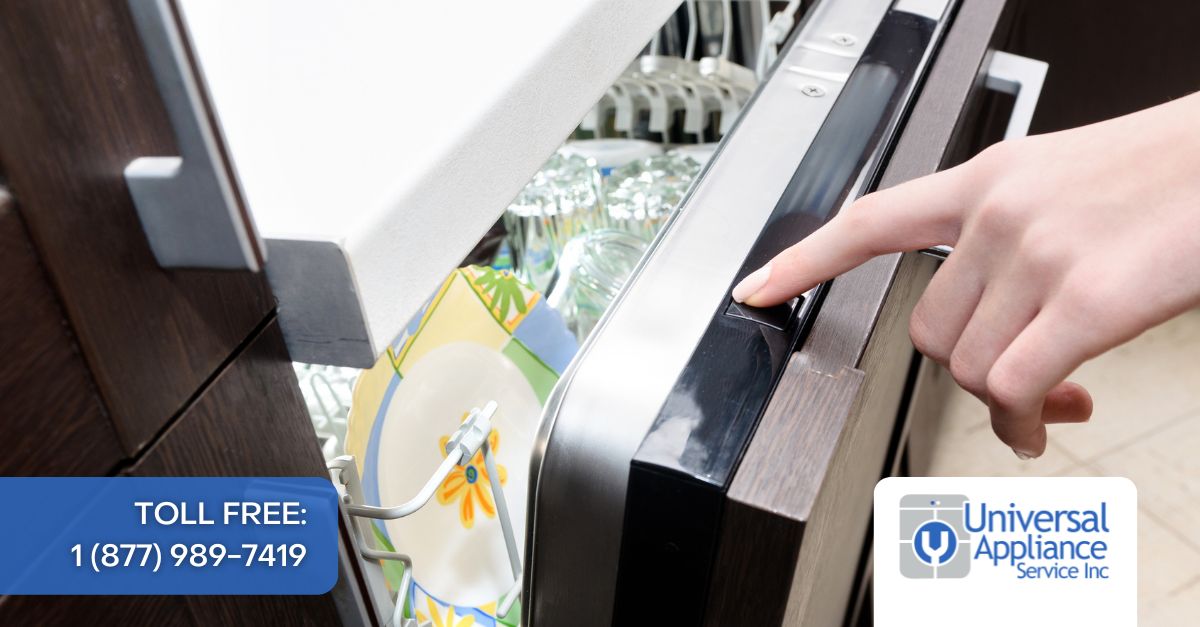Do you have a leaking dishwasher? If so, you are not the only one with this problem. There are several possible reasons why a dishwasher may start leaking, which can vary from the apparent to the totally unforeseen. The dishwasher you have is meant to simplify your life, yet there are times when it seems like an additional duty. You cannot determine the cause of the foul stench caused by the mold and mildew, which consistently leaks water over the floor. Don’t worry; we’re here to assist you in any way we can! The following are some of the most prevalent causes of why your dishwasher might be giving you trouble.
The Water Doesn’t Reach the Heating Element
It’s conceivable that the water isn’t getting to the heating element in your dishwasher, which would explain why it’s leaking water. The heating element is responsible for heating the water in the dishwasher so that it may effectively clean your dishes. It’s possible that the heating element is broken, blocked, or otherwise impaired in some way, which prevents it from functioning as intended. Before you can repair your leaking dishwasher, you will need to determine if the heating element is clogged or has to be replaced. If the latter is the case, you will need to unclog it. You may verify this by adding a few drops of food coloring to the water supply line and then observing whether or not the hot water line has taken on the color of the food coloring. If you cannot locate any color, check to see that none of the hoses has been detached from their fittings or has become dislodged from their connections.
Low Water
It is possible that the dishwasher does not have enough water in it if the dishes do not dry after being washed in it. If the water level in your plumbing system is too low or if there is a leak in your plumbing system, this might occur. The most effective method for determining whether or not this is the case is to open the tub’s door in the dishwasher and examine its contents. It is OK for there to be up to about an inch and a half of water within. If there are just a few drops, the power should be turned off, and as much water as possible should be drained. Before restoring electricity to your appliance, you may need to reset a few breakers or fuses. If they do not work, you will need to contact an appliance repair professional who will either replace any broken components or do routine maintenance checks on your machine to ensure that anything similar does not occur in the future!
The Door Seal, If Not Properly Installed, Can Cause a Leaking Dishwasher
This is one of the most typical explanations for why you might be experiencing a leaking dishwasher. If the door seal is not placed correctly, water may seep out of the bottom of the machine. This may happen if the machine is not maintained properly. This may occur if someone attempts to remove the old seal but does not follow up with installing a new one after that. It is also possible for a door gasket or seal that is not securely fastened to the door to cause this kind of issue. If you open the door to your bathroom and find water on the floor or behind your sink cabinet, you have the type of leak I’m talking about. Make sure that your new seal is appropriately installed to resolve this problem; if you need assistance in this regard, seek the assistance of a trained specialist.
There is Debris in The Pump Filter
Pump filters are found at the bottom of the motor housing. During a typical operation, it will capture any food particles that could go inside your computer. Clogged up with food or other debris might cause water to seep from the dishwasher’s bottom. You’ll need to dismantle your dishwasher to inspect these parts. The first step is to unhook it from both ends and switch off the breaker box’s power supply. Remove the screws from the cabinet and door frame’s inner perimeter. Your device should include a panel that can be removed so that you may access all areas. Remove any debris from the dishwasher’s upper and lower sections to ensure that water may flow freely. To avoid losing any small parts, be cautious when cleaning these areas. Put everything back together in reverse order after it’s clean and debris-free. Before you re-plug it in and turn the power back on, be sure to tighten all of the screws.

Water Is Stuck In the Hose Or Spray Arm
By a wide margin, this is the problem that arises the most often with people’s dishwashers. The water cannot move and eventually flows back into the dishwasher. This not only results in a significant inconvenience since water may splash all over your floor, but it also may cause the odor within your dishwasher to be unpleasant. To resolve this issue, you will need to remove the sprayer from your kitchen sink and flush it by running water through both sides until all the water has been removed. After that, reattach it and activate your kitchen faucet so water may start flowing through it again with pressure. This ought to assist in pushing any residual water out of the hose and into your waste disposal, preventing any future issues with a leaking dishwasher.
If none of these solutions works for you or if you feel that something else might be wrong with your appliance, then there are chances that it might need repairing by professionals like us at Universal Appliance Repair Inc today at 818-832-5318 for more.

